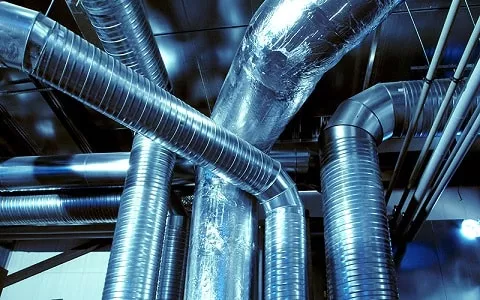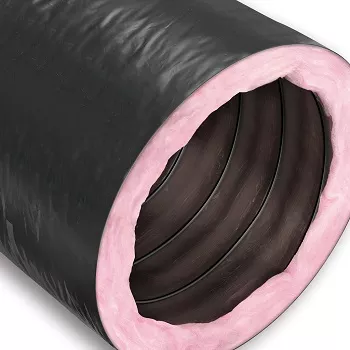
There are so many benefits to using insulated duct in a home. Not only is it possible to save hundreds of dollars each year on your energy bills, but insulated duct can also minimize the loud operating noises your HVAC system makes.
You should consider all the angles when dealing with something as important as HVAC. The following outlines the pros and cons of insulated duct, and when it should be used.
Why Insulated Ducts?
We have all heard the saying, "sometimes you have to spend some to make some." Well with HVAC, sometimes you have to spend some money to save some. Insulated duct costs more than the regular duct. However, once you start benefiting from a more efficient HVAC system, you will see it was worth the investment. The better insulated your ducts are in your home, the more money you are going to save on your heating bills.
Did you know that around 20 percent of heated/cooled air is lost to leaks or through uninsulated duct? This results in a higher utility bill and it also takes longer to heat or cool a house. Insulated ducts will ensure your cool or hot air will stay that way as it passes through your HVAC system.

Anyone who lives in a home where the ducts run through the attic, in the garage, or even through a crawl space definitely need insulated ductwork. Anywhere that has an extreme temperature difference between the air in the ducts, and the air around the ducts needs some kind of insulation around it. If the ductwork in your home runs through the ceiling of a heated basement or well-insulated walls, there may be no need. However, even if your ductwork runs through insulated areas, your ducts can still get small cracks and tiny holes in them.
The Benefits of Insulated Duct
There are so many benefits to having insulated duct installed in your home. Not only will it save you money, but it will help your home run more efficiently. Putting Insulated duct in your home is almost always a smart choice and will keep your heater and air conditioner running smoothly for many years to come.
Strategically placing your insulated flex duct will allow you optimal efficiency and savings. Don't use it where you don't need it. Use it where you need it, especially if you plan living there a long time. The longer you live there, the more you save.
If you know others who are wondering when to use insulated duct, please share this article with them. Also, remember that we have all the ductwork you need to update your existing installation or to overhaul it.
Related resources:
Cleaning a Dryer Vent Hose
Connecting Your Ducting



